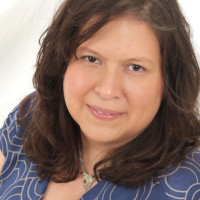CRAW/CDC/NSF Workshop on Diversity in Design Automation
Originally Printed in the Summer/Fall 2014 Newsletter
by Sanjukta Bhanja
On May 29, 2014, CRAW/CDC sponsored a workshop to enhance diversity in design automation with a focus on emerging directions and technology. The workshop was co-sponsored by the National Science Foundation (NSF) and the Design Automation Conference (DAC) (Newton Fellowship). It was an enjoyable day and a half meeting with roughly 60 attendees. The workshop was co-located with the Design Automation Conference (DAC) and was held prior to DAC. Workshop attendees were allowed to attend many DAC pavilion and exhibition events.
The workshop’s goal was to (a) expose students to major mile-stones achieved and engage participants towards critical issues and challenges ahead, (b) provide students with networking and mentoring opportunities with women and minority ex-perts from academia and industry/research labs, and (c) foster a sense of community among students and researchers.
Many eminent scholars and several upcoming researchers in design automation participated as distinguished speakers. They not only focused on research topics but also talked about their academic journey and perspectives. According to Dr. Laleh Behjat (speaker), “I call these talks ‘research with personality.’ The talks not only have great technical value, they also enable the students to connect with the researchers on a personal level.”
This year’s workshop featured four keynote speakers: Dr. Linda Milor (Georgia Tech), Dr. Diana Marculescu (Carnegie Melon University), Dr. Anupama Kaul (National Science Foundation), and Dr. Mary Jane Irwin (Penn State University). In addition to the keynote addresses, there were other lectures from Dr. Helen Li, Dr. Shobha Vasudevan, Dr. Laleh Behjat, and Dr. Sanjukta Bhanja.
The workshop also offered an engaging student poster session at which students presented and discussed their work with their peers, the speakers, and mentors of the conference.
In addition to the poster session, there was a panel moderated by Dr. Ian Harris (UC Irvine) on “Addressing Challenges of Diversity in Design Automation.” Critical issues such as a sense of isolation and the perception of women faculty were discussed with vigor. Perhaps the most exciting event was “speed mentoring,” a one-on-one mentoring session between a mentor and a mentee (graduate students); after five minutes, the mentees shifted to the next mentor.
Mentors were divided into two groups—academia and indus-try. This event was co-organized with Women in Electronic Design (WED), a group of women from the Electronic Design Automation (EDA) industry. The mentees were able to talk roughly half the time with academic mentors and the other half with industry professionals. Students had an opportunity to interact one-on-one with professional EDA experts from Synopsys, Intel, Mentor Graphics and Qualcomm in addition to the speakers and attendees from academia. It is anticipated that future workshops will spend more time on speed mentoring.
CERP also conducted a follow-up anonymous participant survey at the end of the workshop. Based on the participants’ collective responses, it was noted that most of the participants came to the workshop to:
- Network with professional and peers
- Learn about career-shaping policies
- Increase self-confidence
- Understand career choices and the challenges ahead
- Learn about the effect of diversity in their career and work life issues
- Present their work and discuss it with professors and peers
- Decide whether to go into academia or industry
- Obtain guidance towards a successful research tenure path at an academic R1 institution
An attendee stated, “I wanted to meet senior researchers working in the EDA area and get their opinion about potential paths to pursue (such as working in academia or working in a research group within a company). I also wanted know more about the challenges and important things related to pursuing tenure track.”
Approximately 80% of attendees had achieved their goals with significant impact. Overall, 91% of the respondents stated that the mix of speakers and mentors from academia and industry was ideal and felt that the workshop had a positive impact on research as a career choice. Many enjoyed the work-life balance aspect of the technical speeches, with one respondent commenting that “I think another positive point of view of workshop was the balance topic between work and life, which every presenter mentioned in his/her speech. I think this part is very important because, as a woman, there are always such problems that everyone is struggling with in their life.”
The leadership team for the Diversity in Design Automation workshop (Sanjukta Bhanja, Irene Calizo, Ian Harris, Valen-cia Koomson, and Soha Hassoun) would like to express their appreciation and gratitude to CRAW-CDC (Dr. Dilma Da Silva and Dr. Russ Joseph), NSF (Dr. Sankar Basu), DAC leadership and Women in Electronic Design (WED) for their support. They look forward to future versions of this critical workshop.






